Your home's emergency heat is a lifesaver if your heat pump or furnace breaks down in the middle of winter. But is it more expensive to run if you have to resort to emergency heat? Let's take a look, so you know what to expect.
Emergency heat is typically more expensive to run than your heat pump or furnace because it uses more energy. It's best to avoid using emergency heat if possible, but if you have to use it, prepare for a higher energy bill.
Knowing the costs of running your emergency heat can help you budget and prepare for a higher energy bill. In this article, we will take a closer look at why emergency heat is more expensive and some tips to help you save money.
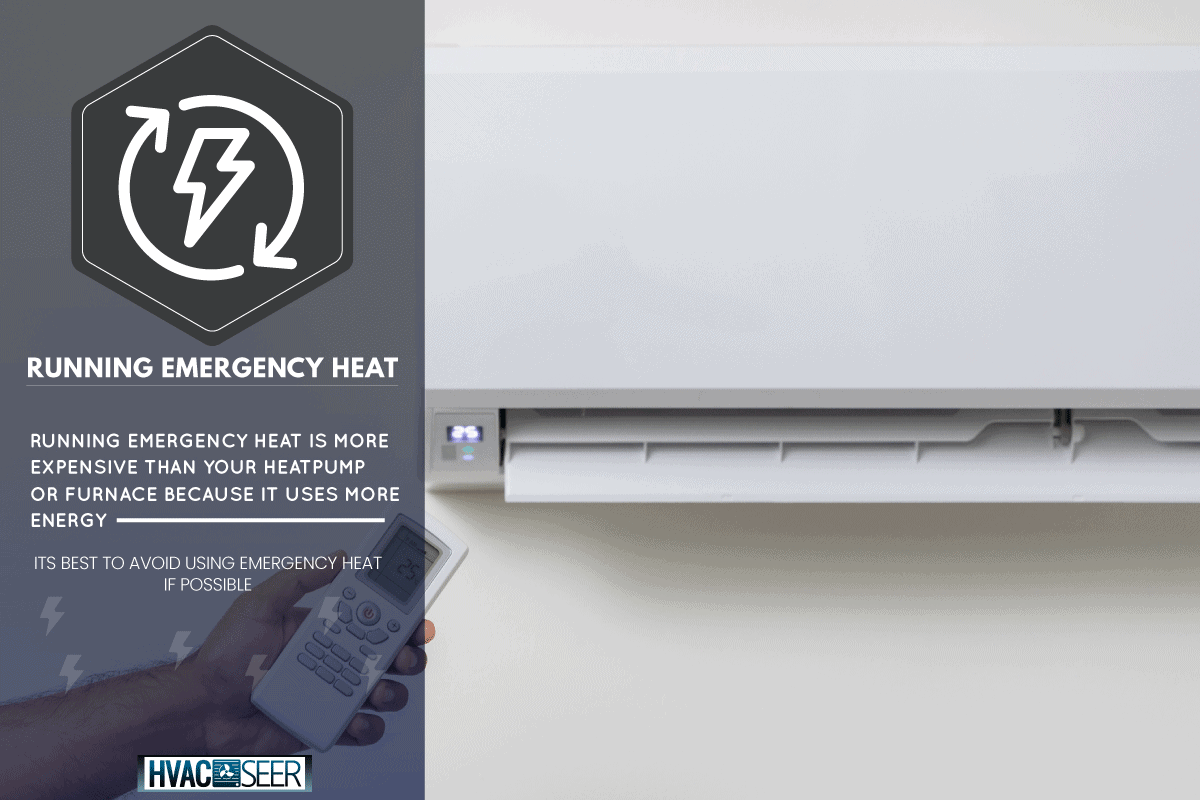
Why Is Emergency Heat More Expensive?
Before we explain why emergency heat is more expensive, it's important to understand how it works. Emergency heat is a backup system that kicks in when your heat pump or furnace breaks down. Typically, it runs on electricity, which is more expensive than natural gas.
Typically, if your home drops below 35 degrees Fahrenheit, your heat pump will automatically switch to emergency heat. This is because heat pumps are less efficient in frigid temperatures and can freeze if they're not properly maintained.
When your heat pump runs in emergency heat mode, it works harder than usual to keep your home warm. Unfortunately, this means it uses more energy, which leads to a higher energy bill.
There are a few other factors that can contribute to the increased cost of running emergency heat. For example, if your home is very large or has poor insulation, it will take more energy to keep it warm.
What's more, if you live in a climate with extreme temperatures, you'll likely use emergency heat more often, which will also increase your energy costs.
If you run into a situation where your emergency heat kicks on, then call a heating technician as soon as possible. It's important to fix the issue so you can return to using your heat pump or furnace and avoid high energy costs.

How Much Does Running Emergency Heat Cost?
The cost of running emergency heat varies depending on a few factors, such as the size of your home and how cold it is outside. However, you can expect to see a significant increase in your energy bill when using emergency heat.
For example, under normal running operations at 30 degrees Fahrenheit for 1-week is around $33. Emergency heat uses more watts, so it will be more expensive. You can spend almost $200 running emergency heat for that same week.
As you can see, that is a huge increase in your energy costs. So, if you use emergency heat regularly, it can really add up and put a strain on your budget.
Why Did My Emergency Heat Come On?
There are a few reasons your emergency heat might have come on, such as:
Faulty Heat Pump
Like any component, heat pumps can fail. If your heat pump breaks down, then emergency heat will automatically kick on to keep your home warm.
Therefore, it's important to have a heating technician come out and look at your heat pump if you notice that it's not working properly.
Read more: When Does A Heat Pump Switch To Emergency Heat?
Heat Pump Froze
In extremely cold temperatures, your heat pump can freeze up. When this happens, emergency heat will automatically come on to prevent further damage to your heat pump.
If you live in a climate with extremely cold temperatures, it's important to have your heat pump regularly serviced to avoid this issue.
Low Refrigerant Levels
Heat pumps rely on refrigerants to operate. If the refrigerant levels are low, then your heat pump will not work properly. This can cause your heat pump to overheat and breakdown, which will trigger emergency heat.
Dirty Air Filter
If you have a dirty air filter, it can block the airflow to your heat pump, making it overheat. What's more, your furnace will have a tough time keeping the air warm if the filter is full of dirt and debris.
This can lead to your furnace working harder than usual, which can cause it to break down and trigger emergency heat.
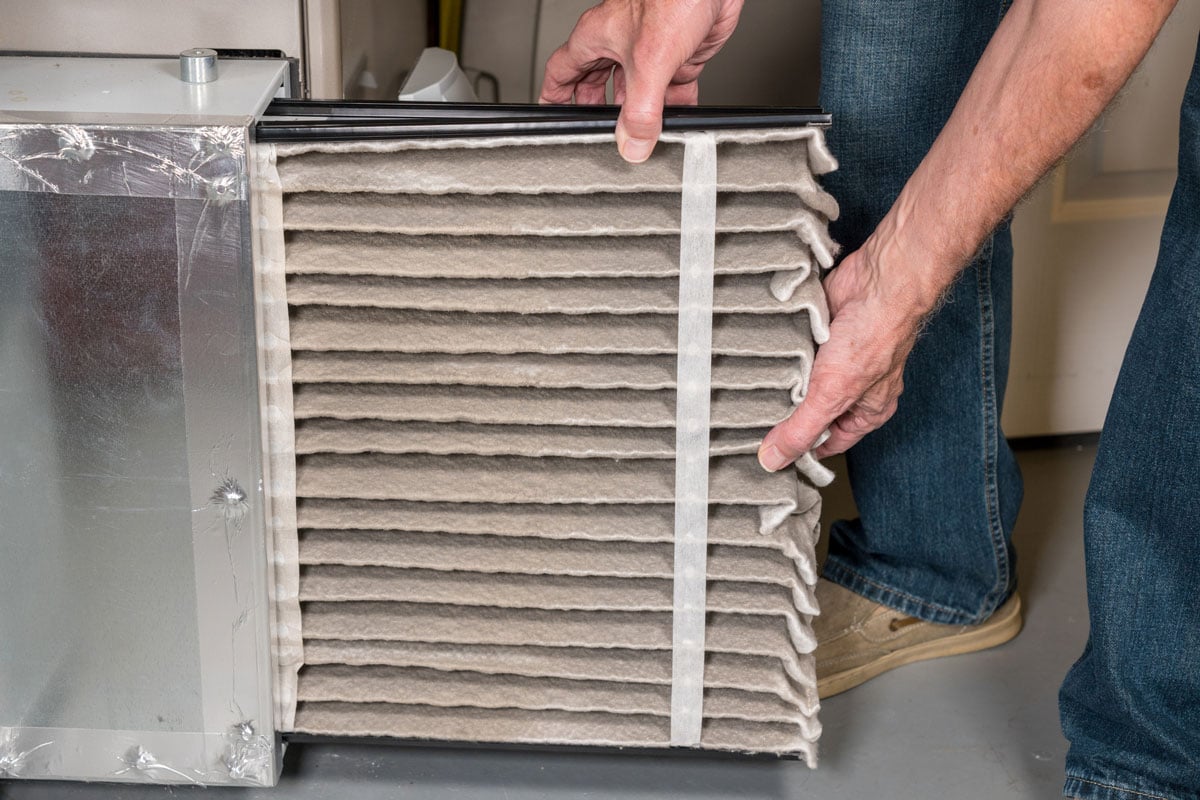
Poor Insulation
If your home has poor insulation, it will be harder for your furnace to keep the air warm. So not only will your home not be able to maintain a comfortable temperature, but your energy bills will be higher.
Also, it can cause your furnace or heat pump to cycle on and off constantly, which can lead to premature breakdowns and trigger emergency heat.
Faulty Thermostat
If your thermostat is not working properly, it may not be signaling your furnace or heat pump to turn on when the temperature drops. This can cause your home to get too cold, which will lead to emergency heat turning on.
You may not know that your thermostat is not working properly until emergency heat kicks on. Check the calibration of the thermostat batteries. You may need to replace your thermostat if it's not working properly.
Leaking Ducts
If your ductwork is leaking, then warm air will escape before it has a chance to heat your home. Like poor insulation, losing warm air can cause your furnace or heat pump to cycle on and off constantly. This can lead to premature breakdowns and trigger emergency heat.
It's important to have your ducts regularly inspected and sealed to avoid this issue.
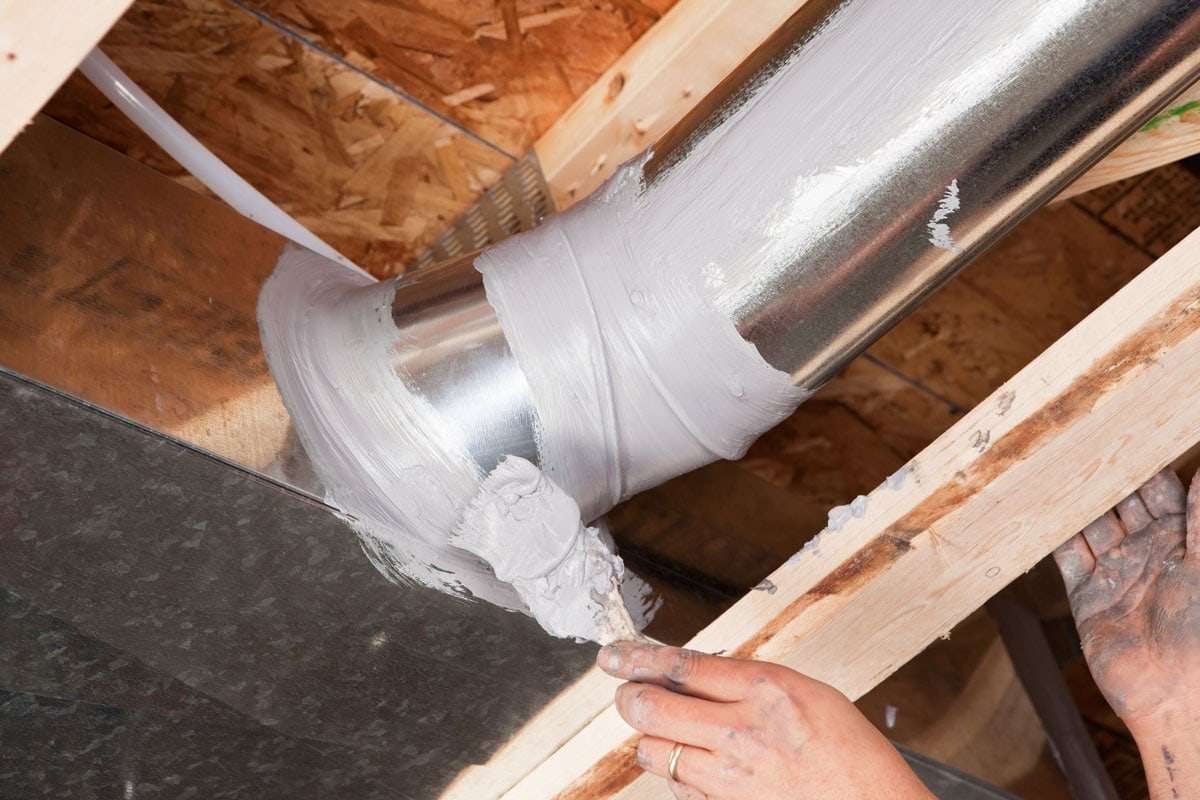
How Long Does A Heat Pump Last?
One way to avoid your emergency heat coming on is to have a reliable heat pump. Heat pumps can last for many years, but they will eventually need replacing.
The average lifespan of a heat pump is around 15 years. However, this can vary depending on the quality of the heat pump and ensuring proper maintenance.
If you take care of your heat pump and have it regularly serviced, it can last for 20 years or more. However, if you neglect your heat pump, it may only last for 10 years or less.
For homeowners living in colder regions, it's important to pick a heat pump that is suitable for those climates as they will have to work harder. Otherwise, they won't last long.
If you have a power outage, it's good to have a generator for backup power. Check out this Westinghouse 12500 Peak Watt generator on Amazon.
How Long Do Furnaces Last?
If you instead have a furnace in your home, then you may wonder how long it will last. The average lifespan of a furnace is around 15-20 years. However, furnaces can last much longer with proper maintenance.
Furnaces that are not well maintained will have to work harder and will break down more often. This can cause your emergency heat to come on more frequently.
To avoid this, make sure you have your furnace regularly serviced and replace it when you need to do so. Typically, having your furnace serviced once a year is sufficient. However, if you live in an area with extreme temperatures, you may need to have it serviced more often.
What's more, if you live in a home with pets, you may need to clean or replace your air filters more often as pet hair can clog them up and restrict airflow.
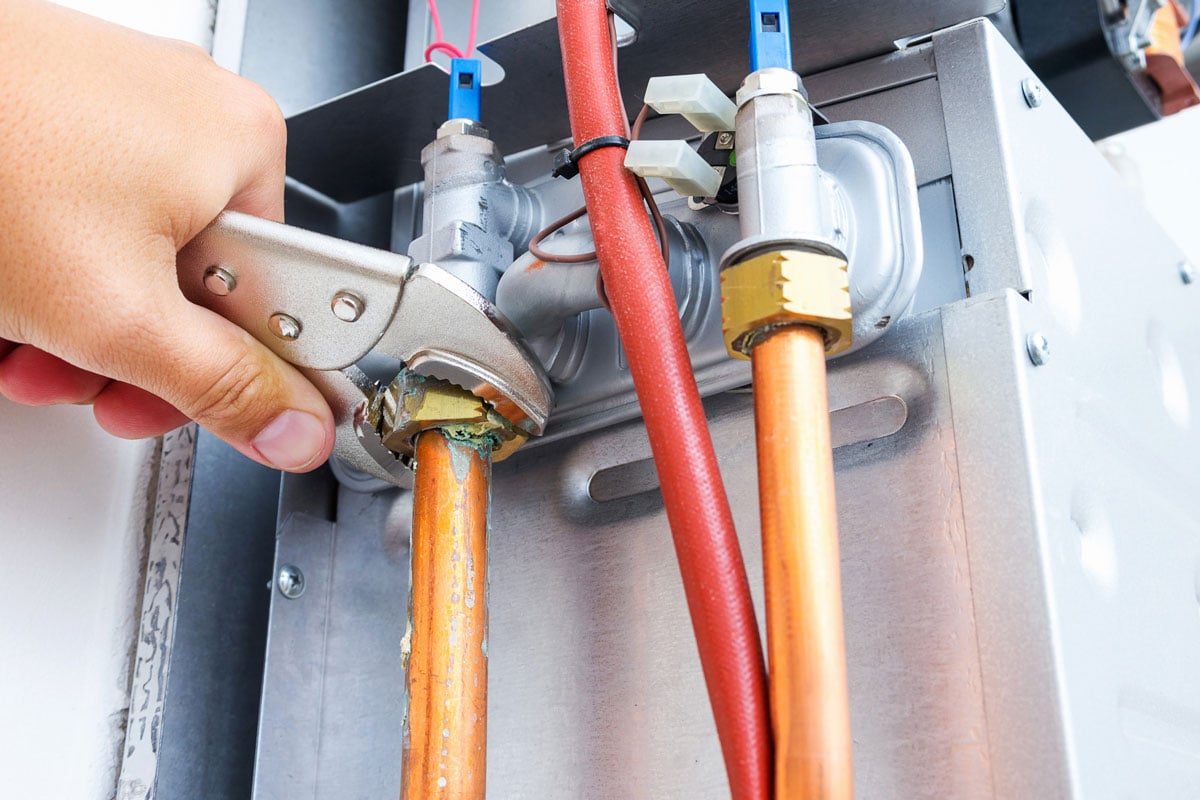
What Can You Use Instead of Emergency Heat?
Instead of using your home's emergency heat, you could use a backup heat source like a space heater. Space heaters are small. So, you can place one in the room you are occupying to stay warm without having to heat your entire home.
Space heaters come in electric and gas-powered models. Electric models are typically more expensive to operate, but they are also safer as they don't produce any flames.
Gas-powered models are cheaper to operate, but they produce flames and can be a fire hazard if not used properly. If you choose to use a gas-powered space heater, place it in a well-ventilated area and that you have a carbon monoxide detector in the room.
What's more, if your home also has a fireplace, you could use that as a backup heat source. Just be sure to open the flue so that smoke doesn't build up in your home.
Be sure not to open the doors or windows to keep the heat in. If you have curtains, close them to help keep the insulation in. Call your HVAC specialists as soon as possible for assistance.
In case of an emergency, check out this Portable Electric Space Heater on Amazon.
Final Thoughts
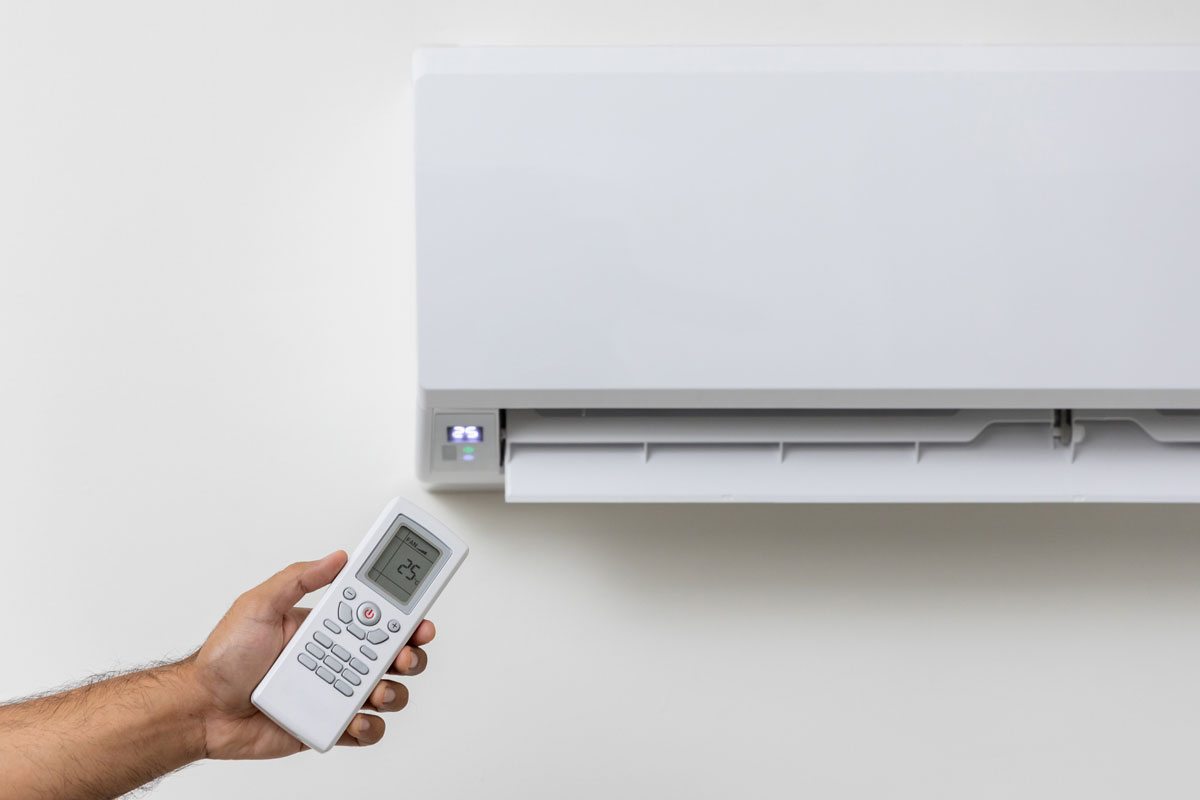
If your emergency heat kicks on, then there is a problem with your HVAC system. To avoid this, make sure you have your system regularly serviced and remedy any issues in a timely manner.
Made it to the end? Here are other articles you might like:


